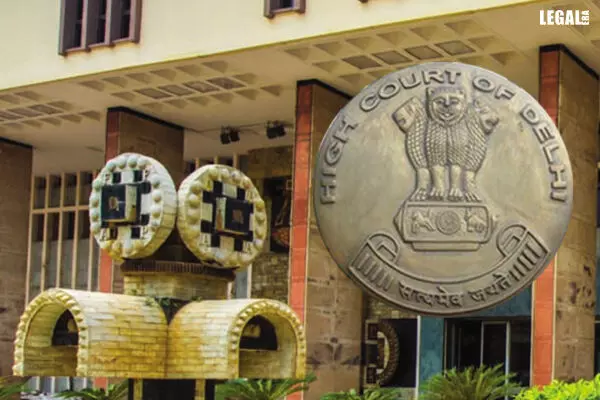- Home
- News
- Articles+
- Aerospace
- Artificial Intelligence
- Agriculture
- Alternate Dispute Resolution
- Arbitration & Mediation
- Banking and Finance
- Bankruptcy
- Book Review
- Bribery & Corruption
- Commercial Litigation
- Competition Law
- Conference Reports
- Consumer Products
- Contract
- Corporate Governance
- Corporate Law
- Covid-19
- Cryptocurrency
- Cybersecurity
- Data Protection
- Defence
- Digital Economy
- E-commerce
- Employment Law
- Energy and Natural Resources
- Entertainment and Sports Law
- Environmental Law
- Environmental, Social, and Governance
- Foreign Direct Investment
- Food and Beverage
- Gaming
- Health Care
- IBC Diaries
- In Focus
- Inclusion & Diversity
- Insurance Law
- Intellectual Property
- International Law
- IP & Tech Era
- Know the Law
- Labour Laws
- Law & Policy and Regulation
- Litigation
- Litigation Funding
- Manufacturing
- Mergers & Acquisitions
- NFTs
- Privacy
- Private Equity
- Project Finance
- Real Estate
- Risk and Compliance
- Student Corner
- Take On Board
- Tax
- Technology Media and Telecom
- Tributes
- Viewpoint
- Zoom In
- Law Firms
- In-House
- Rankings
- E-Magazine
- Legal Era TV
- Events
- Middle East
- Africa
- News
- Articles
- Aerospace
- Artificial Intelligence
- Agriculture
- Alternate Dispute Resolution
- Arbitration & Mediation
- Banking and Finance
- Bankruptcy
- Book Review
- Bribery & Corruption
- Commercial Litigation
- Competition Law
- Conference Reports
- Consumer Products
- Contract
- Corporate Governance
- Corporate Law
- Covid-19
- Cryptocurrency
- Cybersecurity
- Data Protection
- Defence
- Digital Economy
- E-commerce
- Employment Law
- Energy and Natural Resources
- Entertainment and Sports Law
- Environmental Law
- Environmental, Social, and Governance
- Foreign Direct Investment
- Food and Beverage
- Gaming
- Health Care
- IBC Diaries
- In Focus
- Inclusion & Diversity
- Insurance Law
- Intellectual Property
- International Law
- IP & Tech Era
- Know the Law
- Labour Laws
- Law & Policy and Regulation
- Litigation
- Litigation Funding
- Manufacturing
- Mergers & Acquisitions
- NFTs
- Privacy
- Private Equity
- Project Finance
- Real Estate
- Risk and Compliance
- Student Corner
- Take On Board
- Tax
- Technology Media and Telecom
- Tributes
- Viewpoint
- Zoom In
- Law Firms
- In-House
- Rankings
- E-Magazine
- Legal Era TV
- Events
- Middle East
- Africa
Delhi High Court Overturns Arbitral Award For Loss Of Profit For Contradicting MOU Terms

Delhi High Court Overturns Arbitral Award For Loss Of Profit For Contradicting MOU Terms
The Delhi High Court, bench, comprising Justices Vibhu Bakhru and Tara Vitasta Ganju, has overturned an arbitral award that granted damages for loss of profit, ruling that the decision was vitiated by patent illegality due to a contradiction with the express terms of the Memorandum of Understanding (MOU) between the parties.
The dispute involved a Memorandum of Understanding (MOU) between Plus91 Security Solutions (Appellant) and NEC Corporation India Private Limited (Respondent). The Arbitral Tribunal found that NEC breached the MOU by failing to award work valued at ₹84,30,79,040/- to Plus91. The Tribunal awarded ₹8,43,07,904/- as damages, estimating 10% of the work's value as lost profits, despite Clause 10 of the MOU excluding liability for indirect, special, or consequential losses, including lost profits.
NEC challenged the award under Section 34 of the Arbitration and Conciliation Act, 1996, arguing that the Arbitral Tribunal had misinterpreted the MOU. The Single Judge of the High Court agreed, finding that the MOU was a preliminary agreement and not a binding contract for specific obligations. The Single Judge ruled that the Tribunal's award contradicted the clear terms and intent of the MOU.
The High Court reviewed the MOU, which outlined the parties' intent to establish a working relationship and collaborate on opportunities under the Request for Proposal (RFP) issued by the Airports Authority of India (AAI). The MOU specified confidentiality, the need for specific agreements for joint projects, and limited liability for indirect, special, or consequential losses, including loss of revenue or profit.
Clause 10 of the MOU explicitly excluded liability for such losses, and the High Court noted that the MOU did not include an appendix or additional terms making Annexure-A a binding part of the agreement. The Tribunal’s decision to award damages for lost profit was thus deemed inconsistent with the MOU's terms.
The High Court upheld the Single Judge’s finding that the Tribunal had misinterpreted the MOU, which only indicated an intent to collaborate on future projects without obligating NEC to issue purchase orders for specific work. The Court emphasized that maintaining the original bargain between the parties was crucial, particularly the exclusion of liability for indirect or consequential damages.
The Delhi High Court upheld the Single Judge’s decision to set aside the arbitral award, confirming that the Arbitral Tribunal's decision was flawed due to its disregard for the explicit terms of the MOU. The Court reinforced the principle that arbitral awards must align with the contractual terms agreed upon by the parties, and tribunals cannot override clear contractual exclusions, such as those for loss of profit or consequential damages.



